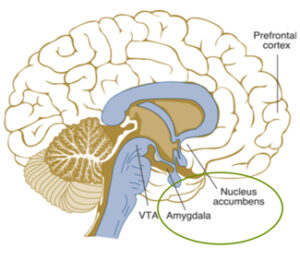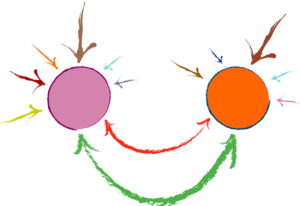For the first time, the ICF (International Coach Federation) Germany organised a two-day Summer-University in August 2013 with a focus on the latest results of neuroscience and what leaders and coaches could learn from these. Over the course of two days eight key speakers, experts in the field of neuroscience, coaching and leadership, presented the results of research projects and the conclusions they drew from them and implemented in their respective fields. From my perspective, the most relevant presentation came from Dr. Karolien Notebaert in her talk and workshop about self-control.
Why should that be of interest to any leader?
In the everyday life of a normal leader the amount of e-mail traffic, number of meetings and variety of tasks to be managed seems to be endless. More and more people struggle with this and feel overwhelmed and almost unable to cope. Although burnout is not the automatic result of this as it also depends on a predisposition of each person, there is no doubt that the pressure of work a leader has to cope with in today’s high-paced working environment is much higher than it was 10 years ago. Yet, we have many technology solutions available to us to manage these challenges better. So, what stops us from being more effective?
To be highly effective in a context of high pacing and demanding tasks, a well-developed self control capacity is essential. This enables us to cope with high demand, to structure our work, to set priorities and to be decisive.

In her neuroscience research projects Karolien Notebaert looked at the processes that guide our reflective capacity and ability to restrain ourselves versus behaving impulsively. This is her definition of self control. Three parts of the brain play a role in these processes: for simplicity reasons I will just call them the control area, the reward area and the alarm system.
Depending on the amount of stress a person experiences at any moment, an area in the deeper (older) parts of our brain responsible for fight or flight reflexes sends more or fewer alarm messages to that area in our brain which controls our behaviour. These alarm signals are being evaluated in that control area with reason and logic and often turned down. In a similar way, another area in our brain sends demands for rewards to the control area. Again, these are being evaluated and controlled instead of leading to impulsive behaviour. All this requires capacity and energy.
Unfortunately though, the control area in our brain has a limited capacity of available energy and processing power throughout a day.
The average leader today seems to have a working pattern, however, which maximizes the depletion of this capacity throughout the day. Running from one meeting to the next, being busy nonstop for hours on end, and repeatedly switching tasks are perfect means to do just that! Latest findings in Karolien’s research have shown that task switching is one of the most energy consuming processes in the control area of our brain. In addition, a continued high level of time pressure and stress causes an over-activation of the alarm system, which in turn requires high level of capacity in the control area to cope with the elevated stress level.
Two more factors play a major role in the ability of the control area to function well and both of them should be easy enough to influence. One is the availability of sufficient nutrients like glucose as a source of energy. The second one is the amount of rest it gets at night. Insufficient sleep prevents the brain from rebuilding its capacity to provide the control needed to be effective throughout the day.
So what could one do to remain as effective as possible?
Karolien has some very simple tips and recommendations which help people make the best of the limited resources of their ‘brain power’ throughout a working day. They are not new but Karolien’s research reinforces the advice business efficiency advisors have given before more intuitively:
1. Reduce task switching to a minimum and eliminate any unnecessary cues which trigger it. In my experience this leads to the following practical steps:
- Do not use any signals pointing out arriving emails in your Outlook.
- When you are focused on a highly complex task, eliminate all sources of distraction by switching off phones and retreating to a quiet place.
- Have clear priorities for the key tasks of the day and stay focused.
2. Pay mindful attention to your work environment and provide cues (not distractions) for positive emotions. This could be the following:
- Make your workplace your home every day. Personalise what is on your desk or around you as much as you can.
- Place pictures around you which create positive feelings.
3. Provide sufficient recovery periods and breaks for the brain to rebuild its capacity after a strenuous piece of work. Just consider the following aspects:
- Take breaks consciously, get up and have a brief, maybe even brisk, walk
- Get sufficient sleep. Apparently, periods of sleep shorter than 6 to 8 hours seem to be insufficient for most people’s brains to recover properly.
4. Ensure that your brain gets sufficient nutrients.
- Don’t skip breakfast and take enough time for a healthy mix of vitamins and carbohydrates which help your brain to function well.
Although this seems straightforward, changing patterns is not as easy as it sounds. If one wants to succeed in taking more care of their brain’s capacity and, hence, its effectiveness I recommend to take one step at a time and celebrate successes.


